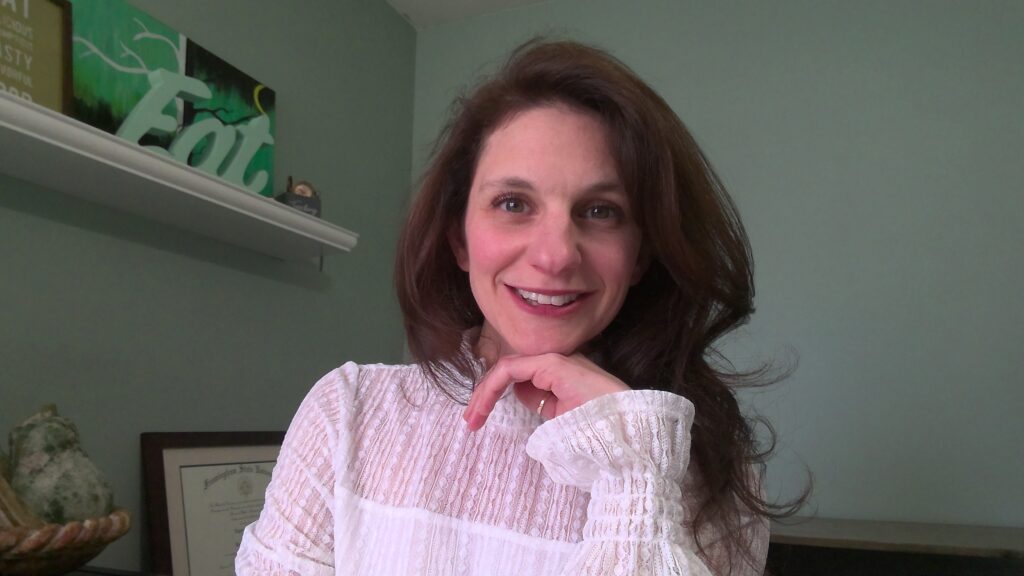Sweet Deception: Unraveling the Myths and Realities of Artificial Sweeteners
-
Alyssa A. Pittman, RDN

Artificial sweeteners are a topic that I often discuss with clients, and I’ve developed a perspective on their use based on scientific evidence and individual dietary needs. Here are some key points that reflect my view on artificial sweeteners:
Moderation is Key
I believe that artificial sweeteners can have a place in a balanced diet when used in moderation. These sweeteners are incredibly sweet, so just a small amount can provide the desired sweetness without adding many calories.
Calorie Reduction Tool
One of the significant advantages of artificial sweeteners, in my opinion, is their ability to reduce calorie intake. This can be especially beneficial for individuals aiming to manage their weight or control their blood sugar levels.
Support for Diabetes Management
I often recommend artificial sweeteners to individuals with diabetes. They allow my clients to enjoy sweet-tasting foods and beverages without causing spikes in blood sugar levels.
Dental Health Consideration
From a dental health perspective, I appreciate that artificial sweeteners don't contribute to tooth decay in the same way as sugar. This makes them a better choice for oral health.
Safety
In my view, most regulatory agencies have deemed artificial sweeteners safe for consumption within established acceptable daily intake (ADI) levels. These safety assessments guide my recommendations when discussing artificial sweeteners with clients.
Individual Tolerance
I also consider individual tolerance levels when suggesting artificial sweeteners. Some people may experience gastrointestinal discomfort when consuming certain types of artificial sweeteners, such as sorbitol or mannitol.
Behavioral Aspects
I take into account the behavioral aspects of sweeteners. While artificial sweeteners can help reduce sugar intake, it's important to recognize that they may not fully satisfy cravings for sweetness and could potentially lead to increased consumption of sweet foods.
Whole Foods Preference
While artificial sweeteners can be a useful tool, I always emphasize the importance of whole foods in the diet. Whenever possible, I encourage my clients to choose naturally sweet foods like fruits over artificially sweetened alternatives.
Educational Role
I play an essential role in educating my clients about artificial sweeteners. I help them understand how to read food labels, identify different types of sweeteners, and make informed choices.
Personalized Recommendations
My recommendations on artificial sweeteners are always personalized to the individual needs and goals of my clients. Some people may choose to avoid artificial sweeteners altogether, while others may find them beneficial in certain situations.
In summary, my view on artificial sweeteners is one of cautious acceptance. I recognize their potential role in a balanced diet and their suitability for specific dietary plans. However, as with any dietary component, individual preferences, needs, and tolerances should guide the decision to include or limit artificial sweeteners in one’s diet. Consulting with a registered dietitian or healthcare professional can provide personalized guidance on this topic.

Hello! I’m Alyssa Pittman, a 35-year-old Registered Dietitian based in Shrewsbury, MA. I still remember the day I passed the RD exam – it remains one of the best days of my life! All my hard work, dedication, and countless hours poured into studying and understanding the intricate world of nutrition had finally paid off. More than the personal achievement, I was ecstatic about channeling my passion for food and nutrition to aid others. Whether it’s assisting those grappling with weight issues, helping manage diseases through diet, or guiding those with disordered eating patterns, my commitment to making a positive difference has been my driving force.
My intrigue with nutrition took root during my junior year in high school. A vivid memory that stands out is when I eagerly educated my classmates about which granola bar was the healthiest option. 😊 Fast forward a bit, and as I delved deeper into my first nutrition class at Framingham State University, I was taken aback. I had stepped into a universe that was much broader and profound than just granola bars and apples. It dawned on me that nutrition was a profound science, influencing not just our physical wellbeing but also our mental health.
Beyond the professional realm, I treasure the time I spend with my beloved husband and our two spirited young boys in our Shrewsbury home. Our evenings often oscillate between cozy family movie nights and playful sports sessions in the backyard. It’s these moments of laughter and bonding that add true richness to my life.
Now, let me take you through my professional journey, where my passion for nutrition came to life in various impactful roles:
Harvard Street Neighborhood Health Center - Director of Nutrition
At Harvard Street, I faced the exhilarating challenge of creating a nutrition department from scratch. Collaborating with dedicated doctors and nurses, I provided specialized nutrition counseling for patients of all ages and backgrounds. In addition, I championed community nutrition, overseeing a food pantry to ensure both availability and education about nutritious food choices.
Blackstone Health Inc. - Nutrition Director
In this role, I was responsible for ensuring that seniors across 13 centers in Rhode Island had access to nutritious meals that met state and USDA guidelines. Beyond the menus, I organized weight loss groups, offered individual counseling, and took to the stage to educate seniors on topics close to their heart – quite literally – such as heart health, diabetes, and more.
College of the Holy Cross - Assistant Director of Nutrition
Here, I worked with the vibrant college community, offering nutrition counseling on various topics like sports nutrition, food allergies, and eating disorders. One of my proud achievements was leading the Food Allergy and Special Diet Program, ensuring that students with dietary needs felt safe and catered for. I also took on the academic hat, presenting to classes about the foundational and specialized aspects of nutrition.
Throughout these roles, one thing has remained constant: my passion for helping individuals foster a healthier relationship with food. By understanding, respecting, and working with our unique dietary needs and preferences, I believe we can all lead healthier, happier lives.
